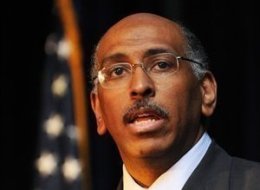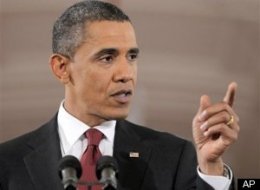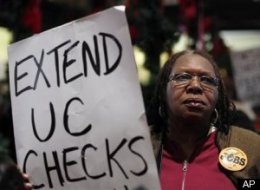ATLANTA – The number of so-called “dropout factory” high schools in the United States has declined since 2002, translating into at least 100,000 more students getting a diploma, a new report shows.
But the report from America’s Promise Alliance to be released Tuesday also said that progress needs to increase fivefold for the country to graduate nine out of 10 students by 2020, a goal of the Obama administration.
States including Tennessee, Texas, New York and Georgia have already figured out tactics that work. But fixing the problem won’t be easy, said report co-author John Bridgeland.
“It’s a targeted problem — we know the schools, we have data on the students and research tells us what works to keep them on track,” said Bridgeland, CEO of education research group Civic Enterprises. “The dropout problem is a fixable problem. We now have the secret sauce to fix it.”
The number of dropout factories — where fewer than 60 percent of students who started as freshmen remain enrolled four years later — fell nationally from 2,007 in 2002 to 1,746 in 2008, the most recent data available. At the same time, the nation’s graduation rate rose from 72 to 75 percent between 2001 and 2008, with more than half of states increasing their graduation rates.
All that while states continue to toughen their curriculums and tests and require students to take more math and science than ever before.
So what’s working?
In Georgia, graduation coaches were placed in high schools to help guide students who were on the verge of dropping out. Tennessee and West Virginia passed laws that take driver’s licenses away from students who drop out. Louisiana, South Carolina and Alabama have developed early warning systems that flag students who are struggling in elementary and middle school.
More than 30 states have raised the compulsory attendance age to 17 or 18 as a way to ensure students graduate.
New York City broke giant high schools up into smaller academies, giving students — especially those from high poverty backgrounds who are less likely to finish school — more individual attention.
In Richmond, Ind., the community was outraged when its one high school was named a dropout factory in 2007. The school worked with parents and the county’s leaders to create tutoring programs for struggling students, focus on helping ninth-graders acclimate to high school and push alternative classes such as dual enrollment where students earn both high school and college credit.
Now the graduation rate at Richmond High School is more than 80 percent — up from 53 in 2006 — and more than 75 percent of students attend college.
“It was an all-out effort,” Principal Barb Bergdoll said. “We really had to do a self-evaluation and say, ‘Where do we need to apply some extra effort and make this better for our kids?’”
The country’s lowest-performing schools are getting millions in federal grants to help increase student achievement and increase graduation rates. Of the 700 schools that have received a grant, half are high schools — marking a new focus by federal education officials.
The Education Department recently lifted restrictions on which high schools could get federal grants for low-performing schools, noting that high schools have been the most underserved when it comes to federal money for struggling students.
“In the past, low-performing high schools have been almost totally ignored in most districts’ school turnaround efforts,” said Education Secretary Arne Duncan.
America’s Promise Alliance — the education advocacy organization started by former Secretary of State Colin Powell and his wife — joined with Johns Hopkins University education researcher Robert Balfanz and Bridgeland’s organization to produce the study, a follow-up to Balfanz’s 2007 report that coined the term “dropout factories.”
The study calculates graduation rates by a federally approved formula based on the percentage of students who graduate high school four years after they enter.
It shows that despite the progress, more than 2 million students still attend a high school where they only have a 50-50 chance of graduating. And nearly all high-poverty urban districts have graduation rates that lag behind the national average.
For years, states calculated graduation rates in different ways, making it nearly impossible to compare among them. And many schools didn’t keep proper records of which students dropped out and which simply transferred to another school, creating unreliable statistics.
But by next year, all states will be required to use a uniform calculation based on the number of graduating students compared to the freshmen who started at the school four years earlier — with adjustments made for transfer students. And most states will have a student tracking system that ensures schools know which students are transfers and which are dropouts.
Balfanz said the research points to what works, which means the biggest hurdle now is executing those solutions on a large scale. He said large federal programs like Race to the Top — which gave $4 billion to states willing to adopt innovative programs for schools — and state-developed uniform standards for math and English will help speed up the process.
“This smashes the myth that these schools are unfixable,” Balfanz said of the study. “We know the solutions exist. It’s just getting those solutions to the schools and kids with the intensity and scale required.”










